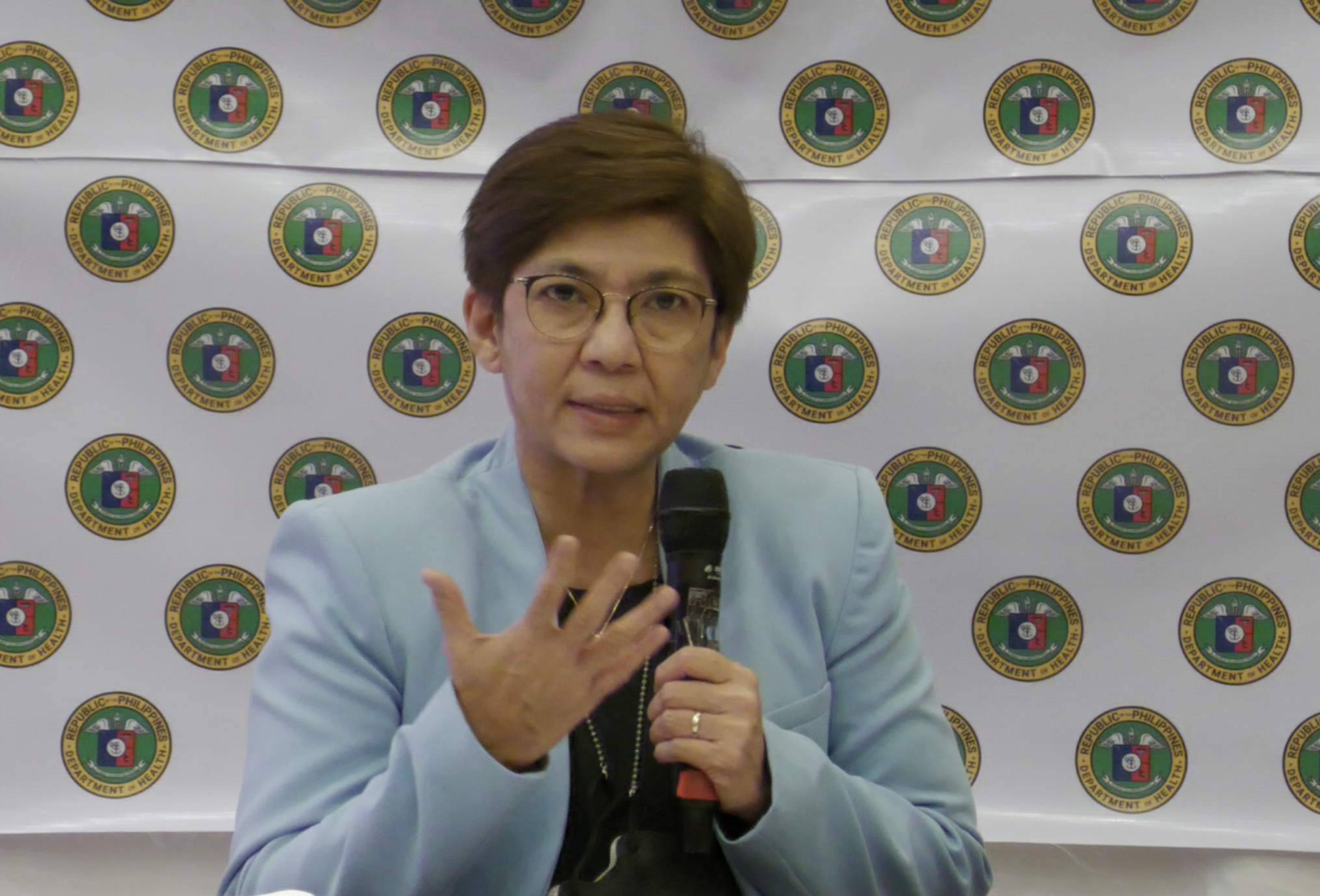‘Not yet time’ to restrict arrivals from China – DOH

Health officer-in-charge Maria Rosario Vergeire answers media questions in a media forum on Tuesday, December 20. Noy Morcoso/INQUIRER.net
The Department of Health (DOH) is not keen on recommending restrictions on travelers coming from China, where a massive COVID-19 outbreak has prompted other countries, including the United States, India and Japan to either impose or start planning tighter controls on such visitors.
Health Undersecretary Maria Rosario Vergeire, officer in charge of the DOH, said it was “not yet time” to revive border controls because of the situation in China, where cases have surged as authorities put an end to its “zero COVID” policy.
“The DOH doesn’t think that [we need to] close our borders or have these restrictions specific to China only because of what’s happening in their country,” Vergeire told a press briefing on Thursday.
She was reacting to proposals, including the latest coming from Transportation Secretary Jaime Bautista, to impose mandatory COVID-19 testing on visitors from China.
Bautista on Wednesday said the country should “be very cautious” of the COVID-19 outbreak in China, where an estimated 37 million people were reportedly infected in a single day last week.
Article continues after this advertisementPreventive measures
The Omicron subvariant BF.7, which has been blamed for the spike in cases in China, had been detected in the Philippines, based on the DOH’s latest biosurveillance report released this month.
Article continues after this advertisementBut Vergeire said preventive measures, such as a strengthened surveillance and monitoring system, remained in place to keep virus transmission at bay despite a more relaxed screening of travelers.
At present, only unvaccinated travelers arriving in the country are required to present a negative antigen or reverse transcription-polymerase chain reaction (RT-PCR) test result to be allowed entry.“We are confident that we can adequately guard our borders through these kinds of policies we have in this country,” Vergeire said.
According to Vergeire, the Philippines is “in a much better position” now despite of the presence of more contagious and immune-escaping COVID-19 strains.
She cited the country’s high vaccination rate in primary doses of about 95 percent and the continued adherence of Filipinos to minimum public health standards, such as physical distancing and handwashing.The health-care system was also able to manage hospitalizations due to COVID-19, she added.
“So, I think, right now, [we just need] to monitor and observe the situation (in China),” said the health official.
The country’s pandemic response is already heading toward a “new normal,” where people should “learn to live with the virus” without compromising both the health of the population and the economy.
She noted also that no agency had the authority to impose border-tightening policies unilaterally—only the Inter-Agency Task Force for the Management of Emerging Infectious Diseases (IATF).
Int’l response
“This has to go through IATF, which the DOTr (Department of Transportation) is a part of, to be discussed further,” Vergeire said.Other countries have already imposed or are planning entry restrictions on travelers from China in fear of possible mutations that may result in more virulent strains and a new wave of COVID-19 cases.
The United States, Italy, India, Japan and Taiwan have already announced testing requirements for travelers from China, while Australia and the United Kingdom are reportedly studying the move.
They cite a lack of information from China on variants and are concerned about a wave of infections. China has rejected criticism of its COVID-19 data and said it expects future mutations to be potentially more transmissible but less severe.
The United States will impose mandatory COVID-19 tests on travelers from China beginning on Jan. 5, 2023.
All airline passengers 2 years and older will require a negative result from a test no more than two days before departure from China, Hong Kong or Macau. The US Centers for Disease Control and Prevention also said Americans should also reconsider travel to China, Hong Kong and Macau.
7-day quarantine
India has also mandated a COVID-19 negative test report for travelers arriving from China, Japan, South Korea, Hong Kong and Thailand, the health minister said. Passengers from those countries will be quarantined if they show symptoms or test positive.
Japan will require a negative COVID-19 test upon arrival for travelers from mainland China.
Those who test positive will be required to quarantine for seven days. New border measures for China will go into effect at midnight on Dec. 30. The government will also limit requests from airlines to increase flights to China.
Italy has ordered COVID-19 antigen swabs and virus sequencing for all travelers coming from China. Milan’s main airport, Malpensa, had already started testing passengers arriving from Beijing and Shanghai. Taiwan’s Central Epidemic Command Center said all passengers on direct flights from China, as well as by boat at two offshore islands, will have to take PCR tests upon arrival, starting on Jan. 1, 2023.
Prime Minister Anthony Albanese said Australia was continuing to watch the situation in China “as we continue to monitor the impact of COVID here in Australia as well as around the world.”
Britain, on the other hand, has no plans to bring back COVID-19 testing for those coming into the country, a government spokesperson said on Thursday. —WITH A REPORT FROM REUTERS INQ
RELATED STORIES
COVID-19 tests eyed for travelers from China
For more news about the novel coronavirus click here.
What you need to know about Coronavirus.
For more information on COVID-19, call the DOH Hotline: (02) 86517800 local 1149/1150.
The Inquirer Foundation supports our healthcare frontliners and is still accepting cash donations to be deposited at Banco de Oro (BDO) current account #007960018860 or donate through PayMaya using this link.